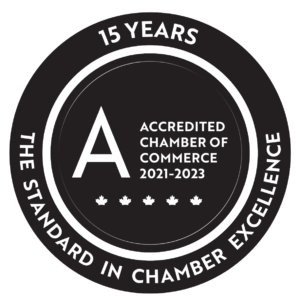 By Echo Wang
By Echo Wang
There are good businesses and there are outstanding ones. Those that differentiate themselves are the ones that truly thrive and stay in the minds of their customers.
Coming up with proven ways to do this is the hard part.
Whatever industry you are in, looking for inspiration from different sectors and different sized business can help shake up your thinking. After all, today’s household name brands didn’t achieve this by accident.
Their stories could just provide the spark for killer strategy ideas for your own start up.
Part one looked at how strategies from household names like Toyota, Apple and Dove, were based on abstract ideas such as loyalty. Part two will look at concepts that are grounded in the everyday of marketing your business: social media, content and pricing.
Standing Out Through Pricing
It might sound obvious, but price can be one of the most powerful ways to stand out from the competition.
Yet to make this strategy effective it has to be about more than simply knocking a few percent of your sale price. If should also be about building out the infrastructure that will make differentiating through price a sustainable strategy.
 HomeSense built its brand by creating an extremely broad appeal through discount retailing. The off-price retailer cuts across a range of demographics because so many of us love paying discount prices for the brands we love.
HomeSense built its brand by creating an extremely broad appeal through discount retailing. The off-price retailer cuts across a range of demographics because so many of us love paying discount prices for the brands we love.
But behind this, HomeSense has a network of 16,000 partners who enable them to reach a wider audience and provide the products they want at a lower price.
This is key because customers are both loyal to HomeSense, but also to the brands of the vendors HomeSense works with – creating a sense of secured commitment to HomeSense prices.
This is combined with opportunistic buying to build inventory, so HomeSense purchases their inventory for the lowest possible price and still have a resale value higher than what they paid for.
Standing Out Through Social
Social media can be the perfect way for new businesses to begin building up customer awareness. Yet being on social platforms and using these platforms effectively as a brand are two very different things.
 General Electric has become something of a gold standard in how to stand out by doing social media right.
General Electric has become something of a gold standard in how to stand out by doing social media right.
Not only has GE been a early adopter – the company launched its Vine account the day after the platform opened – but it has also committed to using each platform well. In the case of Vine, the company’s work won them a Shorty award in 2014.
In addition to making content that was right for any social platform the brand adopted, GE made content that was strategically right for them.
This meant telling a consistent story across all of this content. In the case of GE, this centred on the innovative side to the company’s work, while making the science approachable and engaging for the non-scientist.
Of course entrepreneurs behind newly founded companies won’t be able to bank on the kind of resources that General Electric can put behind its social game.
Yet to dwell on this is to miss the point. Any company can be creative, original and engaging on social media. Any company can think strategically about how it wants to use a platform, rather than doing it for the sake of it. And any company can excite audiences by being passionate about what they do.
Standing Out Through Content
What does skydiving from space have to do with a caffeinated beverage? Thanks to Red Bull, quite a lot.
But it is easy to take this association for granted today, where the content strategy Red Bull has pursued makes them stand out.
 Red Bull rarely promotes the product itself in its content – besides stating the product name. Instead, they use content to associate with a type of lifestyle, so in turn there is a demand for their product.
Red Bull rarely promotes the product itself in its content – besides stating the product name. Instead, they use content to associate with a type of lifestyle, so in turn there is a demand for their product.
They create a market for themselves by promoting extreme sports and athletes to lead people to associate the two.
The lesson to take from Red Bull’s marketing strategy is that by building these kinds of associations, not only can you use content to shift perceptions of your brand, but you can create demand for your product. There was a time not too long ago when there was hardly a market for caffeinated energy drinks. Now it is an industry worth US$27.8 Billion.
Echo Wang is a syndicated mortgage specialist and real estate investment advisor with a true passion for helping others make the most of their investment portfolios. She prides herself in providing an outstanding service to her clients and finding only the best real estate deals.




